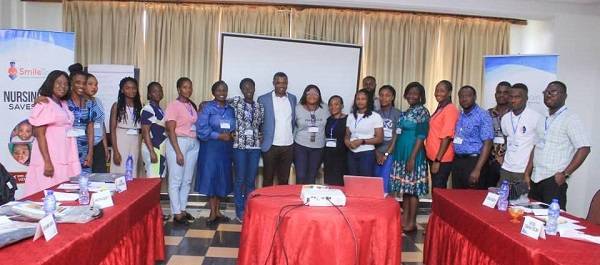
The stigma attached to babies born with cleft lip and palate is declining following sustained educational awareness that the deformity can be treated.
According to a nurse at the Komfo Anokye Teaching Hospital’s (KATH) Cleft Clinic, Sheila Gyasi,”more mothers who have benefitted from the corrective surgery for their babies and have become advocates against stigmatisation.
“Interventions through intensified awareness about the cleft lip by Smile Train and the Ghana Cleft Foundation is yielding some results.
“The sensitisation is up, now the mothers are aware they can bring the babies to the hospitals wherever they are born, the campaign is out there that they should bring their babies and the repair is done,” she emphasised.
She was interacting with the Ghanaian Times here during an intensive training for 16 selected nurses from the KATH to empower them on how to take care of babies with cleft lip and pallete.
It was organised by the Ghana Cleft Foundation and Smile Train International- a children’s charity that supports 100 per cent free cleft repair surgery and comprehensive cleft care for children globally.
Senior Specialist and Member of Ghana Cleft Foundation, Dr Solomon Obiri Yeboah, believed pre and post-surgery care for babies with cleft was critical in their complete treatment hence the training of the nurses.
Dr Obiri Yeboah explained that “pre and post-operation care for cleft babies are critical and the nurses needed to be trained and equipped to be able to handle the babies with care because performing the surgery alone is not enough but the right care by nurses is important to enable the babies to recover well”.
The West Africa Senior Programme Manager of Smile Train, Victoria Awazie, noted nurses were the first point of reference in communities when a baby was born with a cleft lip or palate.
It was, therefore, essential they were empowered to be able to offer the needed information to mothers and also give essential care to babies with cleft lip or palate, she indicated.
A cleft lip happens when the tissue that makes up the lip does not join completely before birth, while cleft palate happens when the tissue that makes up the roof of the mouth does not join together completely during pregnancy.
The main cause of cleft lip and palate is unknown, however, risk factors include malnutrition, infections during pregnancy, exposure to radiation during pregnancy and genetic predisposition.
It is seen in one out of 400 live births in Kumasi according to records at the Komfo Anokye Cleft Clinic.
Smile Train has over the years championed the training of health workers on cleft and financing the surgeries of babies with cleft lip and palate.
Gloria Mawutor Mensah, a participant, praised the organisers for the training, saying it had given them more insights into cleft issues and how to properly handle them even during births
FROM KINGSLEY E.HOPE, KUMASI







